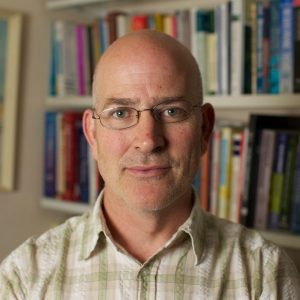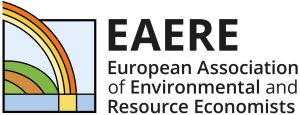Workshop (1st joined EAAE – EAERE seminar) on Valuation Methods in Agro-food and Environmental Economics. Whats next?
About the workshop
The Workshop constitutes an opportunity to bring agro-food and environmental economists together to review the state-of-the-art on valuation methods as well as future challenges. This VII Workshop aims at consolidating the scope adopted in previous editions, with the objective of becoming a forum in which scientists dealing with valuation methods periodically meet to discuss both empirical and methodological questions of different methodologies. Moreover, it aims at opening the door for new editions in the collaborating framework between EAAE and EAERE.
The conference aims at covering the following topics:
- Development, application and theoretical basis for valuation methods in general.
- Incorporating risk and uncertainty in valuation methods.
- Incentive compatible alternatives and experimental economics.
- Methodological issues raised in applications.
- Advantages and disadvantages facing alternative valuation methods.
- Data input, econometric analysis and interpretation stages.
Who is the course intended for?
The VII Workshop on Valuation Methods in Agro-food and Environmental Economics is aimed at scientific audience from different disciplines interested in Valuation Methods both from a methodological and/or empirical point of view, who are member of the EAAE or EAERE at the time of registration for the seminar. For becoming a member, please visit the corresponding websites for EAAE or EAERE.
Formatting instructions for submissions
To participate in the Workshop, interested people must submit a contributed paper proposal (around two pages, single space and standard Arial 11 point type) which such includes at least the motivation and the methodological framework plus an outline of main results. The file must be named with the last name of the first author. All documents should be submitted electronically in PDF format (name-abstract.pdf) to the following electronic address: eaaeworkshop@creda.es. Please note that if the same authors send more than one manuscript, the index number must be used as follows: name1.pdf, name2.pdf. Be sure to review the PDF file you have created before sending it to check that text and formulas (if any) have transferred correctly.
The Steering Committee invites submissions on the following topics:
- Applications in Food Economics and consumer behaviour.
- Applications in Environmental Natural Resource Economics.
- Applications in Agricultural, Food and Environmental Policies.
- Comparisons of reliability of alternative valuation methods.
- Methodological issues (e.g. respondents’ prior knowledge and involvement, heterogeneity, risk and uncertainty).
- Modelling tools for generated data.
Deadline for paper proposal submission: September 15th, 2025
Proposals will be evaluated by two referees following a standard double-blind process. Referees will be suggested by the Steering Committee. Authors from accepted proposals will be notified by October 20th, 2025. A maximum number between 30 and 40 proposals will be accepted. Authors from accepted proposals will be requested to send the full paper by November, 10th, 2025. In the notification letter, the Organizing Committee will provide guidelines for paper submission.
Registration fees
Fees paid prior November 10th, 2025: 275€
Fees paid after November 10th, 2025: 325€
The fee covers documentation, lunches, workshop dinner and coffee breaks.
The organisation reserves the right to make changes to the programme and teaching staff.
 English
English
 03/12/2025 – 04/12/2025
03/12/2025 – 04/12/2025
 Castelldefels
Castelldefels
 Prices:
Prices:
Before November 10th: 275€
After November 10th: 325€
Registrations:
For registrations, please send an email with your contact information to eaaeworkshop@creda.es
Deadlines:
September 15th: paper proposal submission
October 20th: notification of accepted proposals
November 10th: full paper submission
December 3rd – 4th: Workshop
Speakers
SALVATORE DI FALCO
Salvatore Di Falco is a Professor of Economics whose research lies at the intersection of agricultural, environmental, and development economics. His work explores how natural resources—particularly biodiversity—contribute to agricultural productivity, food security, and resilience to weather shocks in arid regions.
He also examines how climate change influences economic behaviour and adaptation strategies. He has published over 60 articles in international peer-reviewed journals and has served as an Editor of the European Review of Agricultural Economics from 218 to 2024 and Associate Editor of the American Journal of Agricultural Economics from 2013 to 2018.
STEPHANE HESS
He is an internationally recognised expert in the data driven study and mathematical modelling of human choice behaviour. He has made contributions to the state of the art in the specification, estimation and interpretation of such models, as well as in facilitating the transition of ideas and approaches across disciplines, notably by also working in mathematical psychology and behavioural economics. Although a majority of his applied work has been conducted in the field of transport, he is also very active in health and environmental economics. Together with David Palma, he is the author of Apollo, a highly flexible and powerful free tool for estimating and applying choice models.
He is Professor of Choice Modelling and Director of the Choice Modelling Centre at the University of Leeds, where he is based in the Institute for Transport Studies. He is also a part-time Professor of Decision modeling, artificial intelligence (AI) and mobility research at Delft University of Technology, and Honorary Professor of Modelling Behaviour in Africa at the University of Cape Town.
Together with his research team at the Choice Modelling Centre, he is setting the research agenda in applying choice modelling in new fields, including education, lifestyle choices, social (network) interactions and joint decision making. Advanced choice models require high quality data, and Hess and his team are leading the field in exploring and exploiting novel data sources, with numerous applications using ‘big data’. He is also the founding editor in chief of the Journal of Choice Modelling and the founder and steering committee chair of the International Choice Modelling Conference. He serves on the editorial advisory board of two other leading journals; Transportation Research Part B and Transportation, as well as academic committees at leading international conferences.
Programme
We are working on the program. We will upload it soon.
Steering commitee

Simone Borghesi (European University Institute and University of Siena)

Iain Fraser (University of Kent)

Vicenzina Caputo (Michigan State University)

Efthymia Kyriakopoulou (Athens University of Economics and Business)

Salvatore Di Falco (University of Geneva)

Jutta Roosen (Technical University of Munich)
Organizing commitee

José M. Gil Roig

Djamel Rahmani

Cristina Poyato Santiago
Organized by:



Share:
The Workshop will be held in the Escola d’Enginyeria Agroalimentària i de Biosistemes de Barcelona (EEABB), at the Polytechnic University of Catalonia, in Castelldefels, 30 minutes far by train from Barcelona city centre.
TRANSPORT OPTIONS FROM BARCELONA:
- Train: R2 Sud towards Castelldefels, Sitges or Vilanova i la Geltrú
- Bus: L94 or L95
- Car: C-31 or C-32
ACCOMMODATION:
Regarding accommodation, we have a number of hotels available with discounts for those who come to the workshop.
*Remember that you are free to choose the hotel that suits you best, whether it is on the list or not. You are not obligated to stay in these hotels, they are just options that you can consider.


